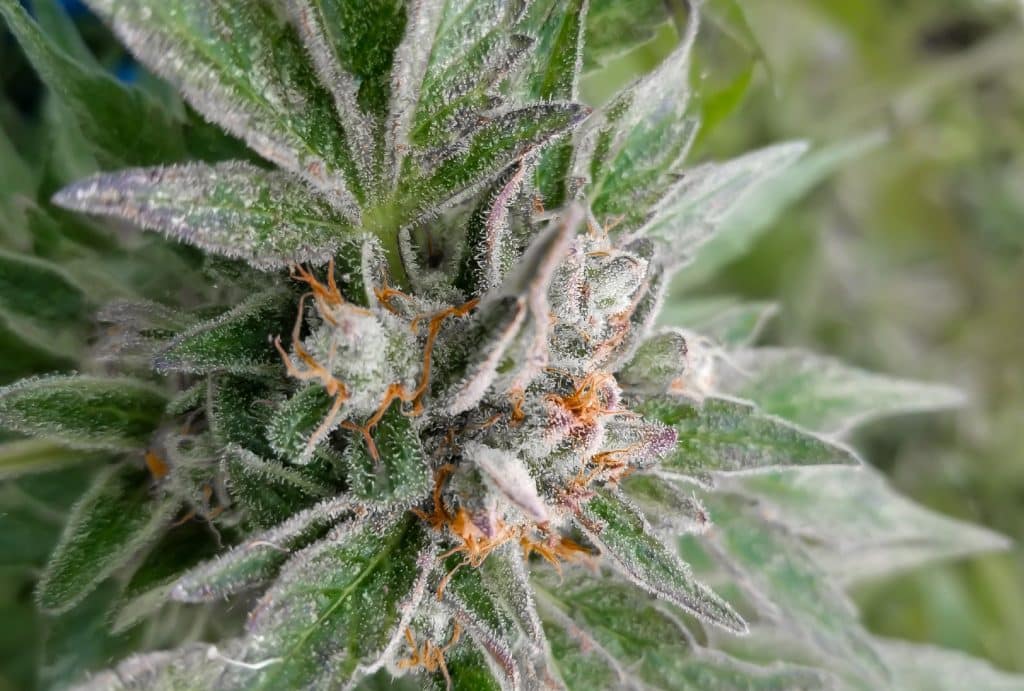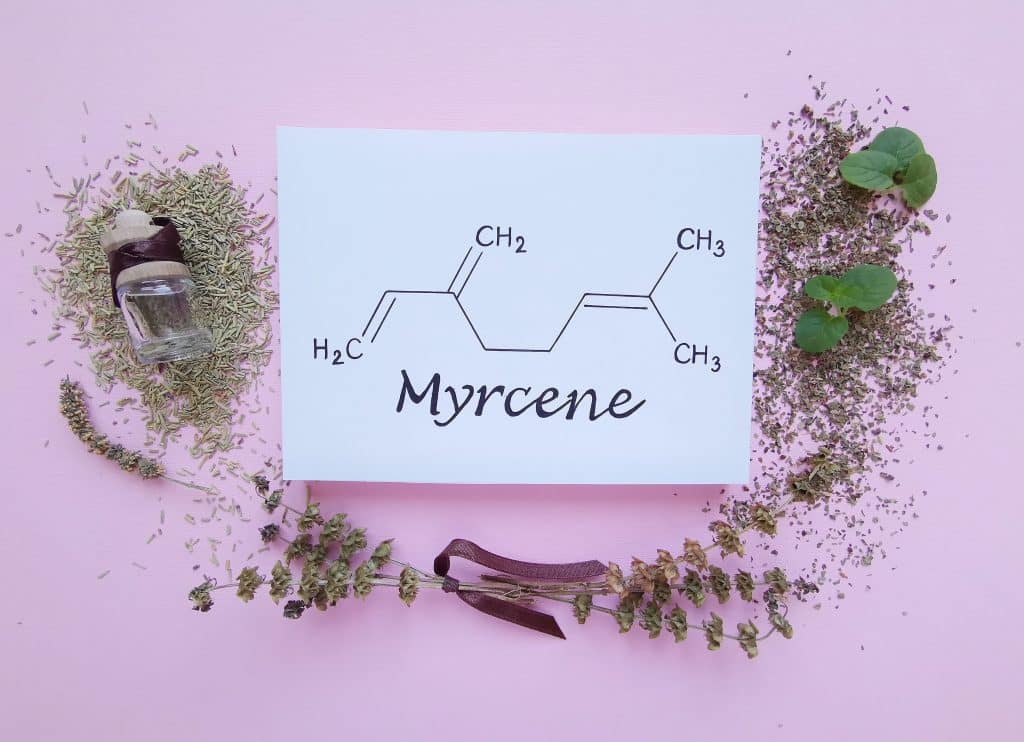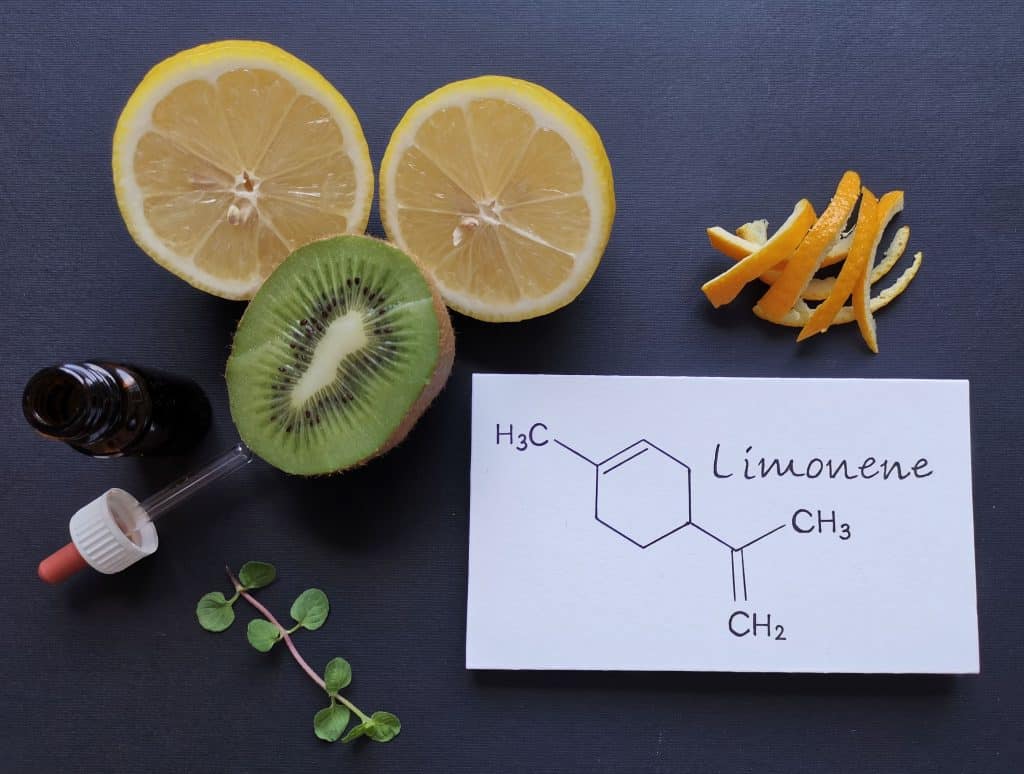The more we learn about weed, the more we learn about the different compounds within, and how those compounds affect our health and how we feel. When we talk about feeling high, we’re generally talking about the THC aspect, or even the CBD. But what about terpenes? Is it possible to get high off terpenes, and if so, which ones are best for this purpose?
What does it mean to get high?
Kind of weird question, right? To a certain degree, we all understand what this means, but at the same time, there are sometimes misconceptions. Consider people who never do drugs. Their idea of what ‘high’ means could be very different from a person who regularly uses different substances. And getting high off of different drugs produces different subjective experiences. So how do we define this idea?
According to Wictionary, the term to ‘get high’ means “To intoxicate oneself with drugs or other substances.” Merriam-Webtser uses the word ‘stoned’, and defines it as 1) “Drunk sense,” or 2) “Being under the influence of a drug (such as marijuana) taken especially for pleasure : high.”
These definitions are interesting. Both say that it involves taking something, but the first definition also implies that it merely involves intoxication, which itself does not have to be a pleasurable experience. Intoxication is defined as 1) “The condition of having physical or mental control markedly diminished by the effects of alcohol or drugs,” 2) “A strong excitement or elation,” and 3) “An abnormal state that is essentially a poisoning,” meaning it doesn’t have to be associated with a good feeling.
Thanks for joining us. For updates to your email, along with product promotions, sign up for the Cannadelics Weekly Newsletter. It’ll get you access to deals on cannabis flowers, vapes, edibles, smoking equipment, cannabinoid compounds (HHC, delta-8), and a ton more. You’ve got options: Get stoned responsibly!
Under these definitions, any drug that effects personal control or creates an abnormal state, is considered intoxicating, and therefore a part of getting high. This, indeed involves CBD as well as THC when it comes to the cannabis plant. Though often touted as a non-psychoactive compound, CBD’s sheer ability to affect mood, proves this an untrue statement. And depending on personal reactions, it can certainly have an effect on physical control.
All this is simply to say that the idea of ‘getting high’ isn’t as explicit as some think, and can be applied to different feelings, not necessarily just feelings of euphoria. However, for our purposes, we’ll stick to looking at getting high, as taking some substance to make a person feel good, to whatever level this means.
What are terpenes?
Now that we’ve covered what it means to get high, let’s look at the compounds in question, terpenes. The word has certainly gained popularity of late, as the cannabis plant in general gains prominence for its many benefits. And while we usually spend more time looking at the cannabinoids like THC, CBD, CBN, and CBC, among others, there are other entirely different compounds to consider; both in how they create a synergistic effect with cannabinoids, and for the effects they specifically give.
Terpenes are compounds produced almost solely by plants, and usually of the conifer grouping. They’re unsaturated hydrocarbons, meaning they’re made up of only hydrogen and carbon. There are also terpenoids, which differ in that they can have other elements like oxygen included. The number of carbon atoms is a differentiator for different kinds of terpenes. Monoterpenes have 10 carbon atoms, sesquiterpenes have 15, and diterpenes have 20.
Terpenes are a part of a plant’s defense system against herbivores and pathogens; while also being what attracts pollinators, mutualists (anything that forms a symbiotic relationship), and promotes possible communication between plants as well. They do this by way of strong smells and flavors, which is how we know them. These constituents are primary in essential oils, because of their very potent smells and tastes.
When it comes to cannabis, we know that terpenes play a role in creating a synergistic effect with other compounds like cannabinoids and flavonoids. A synergistic effect – often called the entourage effect when speaking of cannabis – simply means that the different components work together to create a combined effect that wouldn’t exist if one of the components was missing.

The cannabis plant is still very much under construction in terms of what we know about it. We know a lot, sure, but scientific research uncovers new things every day. So, when speaking about it, it’s always good to remember that we don’t know everything yet. What we do know, is that an average cannabis plant has approximately 400 different terpenes.
It’s said that over 30,000 exist across the plant kingdom. Of these, we really can only identify the effects of a few, though as research continues, this number should increase. Since we can’t say what they all do, we can’t rule in or out effects, but we can speak to the ones that have already been flushed out more.
In the cannabis plant, some of the main terpenes (or, at least, main ones that we talk about now), are pinene, myrcene, limonene, linalool, and beta-caryophyllene. You know how some strains smell a little lemony? Well, that’s likely limonene. Or maybe it has a strong earthy pine scent? That’s the pinene. These compounds don’t just come with funky scents though, they also come with their own effects.
Can you get high off terpenes?
There isn’t a definite answer to this question. Some sources say they just contribute to a THC high, others claim psychotropic effects. And anecdotal evidence backs up both. If the claim of psychoactive effects is true though, then it certainly seems like if those psychotropic effects are positive, and make a person feel good, then they’re producing a high.
In today’s cannabis world, many products are based on the idea of extracting something that might only occur in small amounts, and making concentrated products. This is true of terpenes too. Though they exist in tiny amounts in the cannabis plant, some companies are already selling products such as terpene tonics, which are chock full of the compounds. And anecdotally, these concentrated terpene products are said to make people feel differently. In fact, terpenes are already associated with certain effects.
Like myrcene, which is associated with pain relief, and that intense couch locking feeling that weed can sometimes produce. Couch locking is when you essentially don’t feel like doing anything except lay on your couch. It’s a sort of mental and physical laziness. For me, it comes with a cloudy head, and a feeling of impairment…which classifies as intoxication as it affects my abilities.

Myrcene is thought to produce feelings of relaxation; it stimulates the release of endogenous opioids, which help with pain relief. Conversely, though this happens in higher levels, in lower levels, myrcene is associated with producing more of an energetic effect.
Linalool also has a reputation of producing relaxing effects. It’s used in sleep aid products, and has anti-convulsant abilities. By bringing on feelings of relaxation, it has a psychotropic effect. Likewise, the terpene limonene is associated with anxiolytic, anti-stress, and sedative effects due to upping serotonin and dopamine levels. Pinene on the other hand, is more associated with energizing effects.
Then there’s caryophyllene, which is said to have anti-depressant and anti-anxiolytic qualities; and terpineol, thought to be calming while boosting mood. All of these effects mentioned, change a mental state, and it could be considered that they make you high.
Whether these effects mean you get high off terpenes, is perhaps more subjective, and based on personal definitions, than anything else. A microdose of mushrooms is still considered getting high, even though the effects are minimalized. In that same sense, terpenes can be considered high-inducing, even if not the standard idea of high. And who knows, perhaps in the future scientists will identify a terpene that really does cause a strong euphoric effect. It could already be argued that they do now, so long as they’re in concentrated form.
Terpene products
Terpene products exist in the market already. In California, interested buyers can enjoy Olala infused sodas which use both THC and terpenes. Sodas come in Blue Raspberry, Guava, Orange Cream, and Mango.
Then there are companies like the Terpene Store, which sell a range of materials for use by producers in their own products. The store functions online, and through retailers, and sells products which are FDA approved for food and flavor use. The company sources terpenes from many different plants, with just a selection coming from cannabis plants (specifically hemp). Its catalogue includes different formulations, including a line called ‘Vibe’ which breaks it down to physical/mental states: Awake, Focus, Passion, Relax, Relief, and Sleep, each with a multi-terpene profile meant to create this effect.

True Terpenes is yet another terpene vendor in this burgeoning market. It also sells high grade formulations to producers for product infusion. Much like the Terpene Store, it uses terpenes both from cannabis, and other botanical sources. It also offers a line of products based on physical/mental states. It’s offerings here are: Rest, Recovery, Creative, Energy, Focus, and Calm.
Since one of the benefits of terpenes is their powerful scents and flavors, many companies are now capitalizing on this through making terpene-infused rolling papers which smell great, while also giving a nice burst of terpenes. Like the well-known Zig-Zag, which puts out terpene-infused hemp cones in flavors like Limoncello, and Clementine.
Another well-known company, RAW, also gives some terpene-infused offerings. Like the terpene-infused Strawberry Tree Cones, as well as a limited offering Terpene candle, and a Terp spray that you can spray onto your regular paper or cone, to get the full terpene flavor and effect. Sprays come with different terpene variations, and include RAW Sour Apple Terp Spray, RAW Orange Soda Terp Spray, and RAW SFV OG Terp Spray. Interested buyers must find a local RAW retail location.
In fact, terpene-infused papers were one of the biggest trends at 2022’s Las Vegas based MJBizCon convention. With some products I had to question whether it was terpenes used at all, or some other chemical agent; as the flavor seemed unnatural and wouldn’t quickly wear off what the paper touched (like my hands, or bag). This could signal that new production methods have intensified them, or that some companies might be using non-terpene chemical agents, and masquerading them as terpenes.
Conclusion
Can you get high from terpenes? Well, maybe, depending on which terpenes, the concentration, and how you define being high. The reality is that terpenes might not cause a massive effect on their own in the amounts found in plants; but in today’s biotech world of chemical enhancement, its more than possible to make concentrated products that can do a lot more.
Greetings all! Cool that you made it over to Cannadelics.com; an independent news platform knee-deep in the cannabis and psychedelics landscape. Head our way regularly to keep updated on what’s going on in these dynamic industries, and subscribe to the Cannadelics Weekly Newsletter, so you’re always first to get the story.
The post Can You Get High Off Terpenes? Maybe… appeared first on Cannadelics.
Via https://cannadelics.com/2023/01/17/can-you-get-high-off-terpenes-maybe/
source https://rosalinaklerkx.weebly.com/blog/can-you-get-high-off-terpenes-maybe
No comments:
Post a Comment